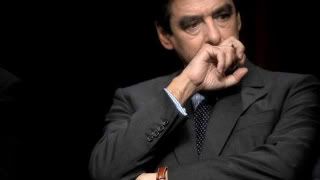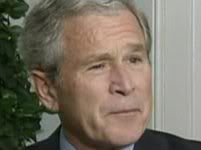Ali Khan*: Muslim View on American Markets MeltdownMIDDLE EAST ONLINE:
The [sic] Wall Street has noticed that Shariah-compliant investments - which avoid speculative risk and debt-ridden greed- -have fared much better in these troubled markets. In the past few years, Shariah-compliant investments in Western markets have grown to more than half a trillion dollars, says Ali Khan.Call it the consequences of irresponsible American invasions, call it the irrational exuberance of short sellers, call it the catastrophe of subprime lending, call it the mismanagement of leveraged products, blame it as you may, American markets are facing unprecedented meltdown and doomsayers see little promise in the federal bailout package. Ironically, the [sic] Wall Street has noticed that Shariah-compliant investments--which avoid speculative risk and debt-ridden greed--have fared much better in these troubled markets. In the past few years, Shariah-compliant investments in Western markets have grown to more than half a trillion dollars.
Islamic financing is attracting huge academic curiosity. Many experts participating in the 8th Harvard University Forum on Islamic Finance held this past April wondered if Islamic financing could have prevented the meltdown that American markets are facing primarily due to mortgage debt and mortgage-backed securities—now known as "toxic investments." This legal commentary highlights the two fundamental principles of Islamic financing that I presented at the Forum.
High Risk InvestmentsThe Quran prohibits al-Maysir or speculative risk, warning the faithful to avoid games of chance in which the probability of loss in is much higher than the probability of gain (2:219). Shariah-compliant investments, therefore, avoid speculative risk, including interest rate options, naked equity options, futures, derivative and numerous leveraged products purportedly designed to hedge investments. Many of these financial products attract speculators in hopes of making quick money. When trusted fund managers, under institutional pressures to show profit, resort to speculative risk, hedge investments turn into suicidal strategies for financial destruction.
In pursuit of greed and thrill, straightforward investments in companies engaged in socially useful activity has become unattractive, even boring, because of their presumably lower rate of return—frequently a self-fulfilling prophecy. Billions of dollars are dumped into companies that promise huge profits but produce nothing. While Islam would allow risking investments in socially beneficial research projects, it prohibits investments in companies peddling alcohol, tobacco, pornography, debt, and weapons—products that undermine our health and safety.
Some investment strategies rampant in the markets are not only morally corrupt but socially harmful. Short sellers, for example, make money when companies collapse and close. Turning the conventional logic of investment on its head, short sellers wish companies to crash rather than prosper for they make most money when companies go bankrupt, workers and employees lose jobs, and pension funds evaporate through declining company stock. Such cynical investments, touted as useful forces that balance the market, are contrary to Islamic law.
Muslim View on American Markets Meltdown >>> | September 27, 2008
*
Ali Khan is Professor of Law at Washburn University in Topeka, Kansas.The Dawning of a New Dark Age – Paperback (US) Barnes & Noble >>>The Dawning of a New Dark Age – Hardcover (US) Barnes & Noble >>>


